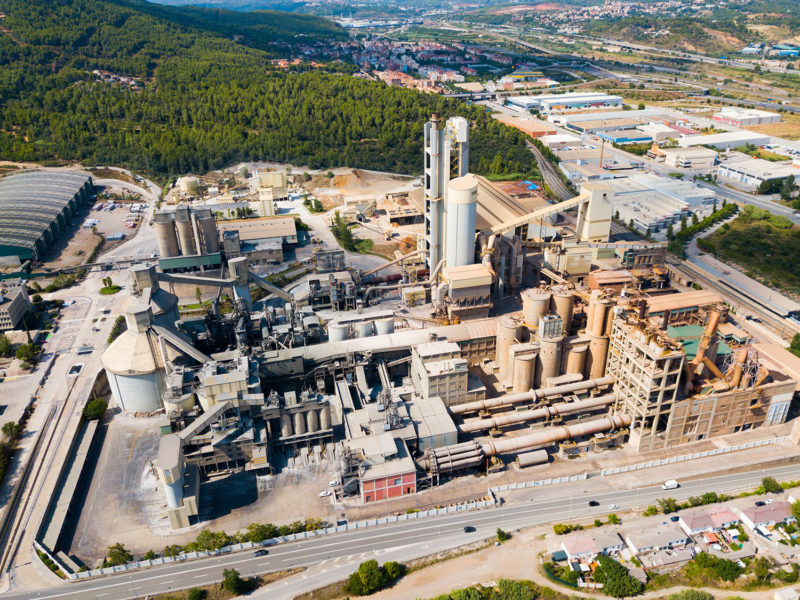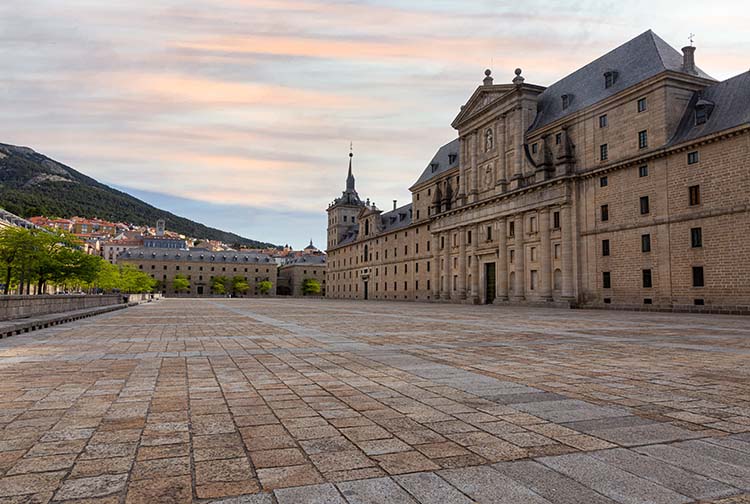

The improvement of the extractive system
The economic exuberance of the late 17th century will make the European monarchies believe that the wealth of the world is static and just needs to be shared out. The constant inflow of gold and silver into the economy would allow them to universalise their idea of civilisation, and they would take advantage of the wonder caused in those cultures with ancestral practices and beliefs. Of the 700 million people who will inhabit the world, almost 120 million will live in Europe, given that globalisation – begun two centuries earlier – will provide them with a food variety that will allow them to extend their life expectancy.
Oriol Garcia Farré, historian and 11Onze agent
By the end of the century, Europeans will have empirically verified the whole of the earth, which will enable them to generate cartography based on observation of reality. Gone will be the imaginary geography based on dogmatic superstitions. Thus, an infinite number of descriptions of exotic civilisations would appear in the European imaginary, which would bring about a change in tastes -more orientalised- and would give rise to a progressive critical attitude towards the beliefs that Europeans held about the world. This feeling of cultural universality will be diluted as Europeans understand that the world is also inhabited by a multitude of cultures and civilisations, which are different from the descriptions contained in the Bible.
Therefore, the adoption of critical thinking will entail the encyclopaedic codification of nature through the revolutionary scientific method, which will be based on observation, experimentation and empirical speculation. Physics – written in mathematical language – will describe the shapes and measurements of celestial bodies, using the newly created analytical geometry. And from this moment on, science will become a body of knowledge differentiated from philosophy and religion. All this will lead to a perception of reality that will cause European intellectual elites to question such basic concepts as property, justice, power and, above all, religion.

“The adoption of critical thinking will entail the encyclopaedic codification of nature through the revolutionary scientific method, which will be based on observation, experimentation and empirical speculation”.
The questioning of the divinisation of power
Clearly, the Church – both Catholic and Protestant – will have to face a multitude of dissenting voices that will doubt the divine origin of the sacred texts, since the divine authorship of the Holy Scriptures will be questioned. Religion will then become an individual and private matter between man or woman and God. And by virtue of this privatisation, Europeans will progressively free themselves from compulsory dependence on the dogmatic disciplines imposed by the Church since the 10th century.
The fact of questioning the sacred foundation that justified the existence of Christian states would crack the confessional legitimacy of the political authority represented by the monarch. With the awareness of the self – through the rational principle “cogito ergo sum” – modern philosophy was inaugurated, which led enlightened scholars to openly question the divinisation of royal power.
This innovative rational thinking will provoke a frontal clash between the supporters of absolute power – in the hands of a single person and fiercely defended by all the European monarchies – against the defenders of the natural state of the human being, who will argue that “no man can be subjected to the arbitrary will of another man, nor can he be forced to obey laws that another man would not follow as he would”. This thought will provoke a profound crisis of European consciousness, which will open the way to the invention of liberty and the claim for social equality.
Absolute power and mercantilism
The theorists of monarchical power – such as Jean Bodin and Thomas Hobbes – justified absolutism as the most perfect form of government and the only one capable of managing the vast accumulation of wealth extracted from the colonies. The high civil service – appointed by the king himself – will develop ever more efficient mechanisms to meticulously organise the state’s finances, since its profits will not only be made by introducing large quantities of gold and silver into the economic system but also by maximising exports and minimising imports with the help of strategic tariffs.
Convinced that the wealth of the world was static because it could only be taken, traded or stolen, absolutist monarchies would persecute any intrusion or private initiative that would destabilise the international trade system, such as the systematic persecution of piracy. On the other hand, the multitude of war conflicts between the different European monarchies – throughout the 17th and 18th centuries – will be seen as a necessary exchange of wealth, territories or people in which everyone will either win or lose and in this way, the economic system will be maintained, which will always have to add up to zero.
The European monarchies – overjoyed by abundance – will completely forget about the lives of their subjects. Marvelling at the situation, they were incapable of implementing social and economic improvements and soon came up against the serious problem of collective poverty within their societies. And in a context of incipient social conflict – such as that of the early 18th century – the economists of the time, Colbert, Mun, Serra or Misselden, defended the application of a low wage policy as the only way to achieve competitiveness in international trade, followed by the perverse argument that “if the population has wages above subsistence level, these will be the cause of the reduction in labour effort”.
The wealth extracted from the colonies will not only be accumulated or transformed into the productive resources that the economy requires but above all it will be used to be exhibited through the arts – architecture, painting and sculpture – the sciences and culture. And all this will lead to a paradox when the main absolutist monarchies – French, Austrian, Russian or Castilian – will be able to live in their lavish palaces, in the most exquisite and refined opulence, regardless of the scarcity of resources on which most of their subjects lived. Even so, this structural dynamic would crumble with the irruption of enlightened rationalism in European thought, which would contribute to the definitive rupture of the status quo of centuries of monarchical excesses. Enlightened despotism attributed to the monarch the mission of bringing economic progress and social welfare to all his subjects, which led to an infinite number of social conflicts. On this point, not all European monarchies tackled the problem of redistributing wealth in the same way.

“The main absolutist monarchies will be able to live in their lavish palaces, in the most exquisite and refined opulence, without caring about the scarcity of resources on which the majority of their subjects lived.”
Two solutions to the same problem
One of the answers would be provided by the Crown of Castile through its economic policies, which would still allow it to enjoy relative international predominance. However, the massive extraction of precious metals from the “New World” – which had allowed it to become obsessed with its particular idea of cultural universalisation – had led to short-sightedness and a lack of adaptability to the changing movements of the economy. Therefore, faced with the challenge of redistributing prosperity among its subjects, it will find itself trapped between a gigantic debt and a lethargic society that will depend mostly on royal decisions and the resources coming from the colonies. All this will reveal the existence of a parasitic social pyramid that will result in a single peasant – constrained by the system of censuses and privileges – being obliged to feed thirty non-producers.
Therefore, the strategy followed by the Crown of Castile – through the king’s ‘valid ones’, the famous Duke of Lerma, the Count-Duke of Olivares or Father Nithard – would be to exert strong fiscal pressure by increasing or creating new taxes on the fragile peasant economies, or on the urban classes by constantly raising prices and lowering wages. This economic programme sought to obtain the maximum resources to continue to support the idea of Empire, given that until then it had allowed them to enjoy a positive balance of trade. In contrast, the nobility and the clergy would be completely exempt from all these tax burdens, as well as allowing them to increase their income. In the end, all this led to a significant impoverishment of Castilian society, with disastrous consequences for the birth rate and the depopulation of large areas of the ‘Meseta’, which would not fully recover until the beginning of the 20th century. And to top it all off, society would be hijacked by the Court of the Holy Office of the Inquisition, which would ensure – through censorship, the creaming of “banned” books and misogynist fundamentalism – that no critical thought that shunned the official line would germinate.
On the other hand, we find the response of the northern European territories – such as the English Crown and the seventeen United Provinces – which will involve firmly introducing Enlightenment ideas into society, politics and economics. While England was to become a parliamentary monarchy through a political process that limited the power of the monarch and the separation of powers, the military union of Utrecht – made up of the seventeen United Provinces – fought energetically until the Peace of Münster against the occupation of the Crown of Castile to become the republic of the United Provinces of the North. Both territories will adopt a new approach to trade that will lead to a mutation of the economic system and will adopt a free market logic without restrictions or state protection. The generation of wealth will no longer be through blood but through the individual’s ability to accumulate capital, which will lead to the emergence of surplus value, the source of the new conflict. And in this new economic paradigm, the State will no longer have a place, given that the basic and irreducible elements that will drive this new mentality will be – both for companies and individuals – under the economic imperative of maximising profits and minimising losses.

“In contrast, the nobility and the clergy will be totally exempt from all these tax burdens, as well as allowing them to increase the collection of their rents.”
Change of the economic paradigm
The cultural universality that had prevailed until then would be replaced by new reasoning based on “if it can be shown that the economic output of all the world’s industrial production must be concentrated in Madagascar or Fiji or that the entire population of black Africa must move to the New World to work on the cotton or sugar cane plantations, there is no economic argument that can stop these initiatives”. And so capitalism will impose ever more extensive globalisation and reach ever more remote regions, which will be more profoundly transformed.
The world will be divided into productive plots according to global criteria such as “it makes no sense to produce bananas in Norway because they are much cheaper to produce in Honduras”. Therefore, when Argentinean landowners will only produce meat or Australian farmers will only be expert wool producers, they will have abandoned their own agricultural production, since it will be more profitable for them to buy grain production for their own consumption abroad. Thus, these transactions will allow them to speculate and get a better economic return on their investments.
And in this sense, both England and Holland were the only exporters of capital and financial services to the American or Asian colonies in order to destabilise the old empires – Castile and Portugal – and thus secure the raw materials for the incipient industrial revolution. The London and Antwerp stock exchanges – founded at the end of the 17th century – would become the commercial capitals of the new economy based on the expectation of speculative dynamism, which would be mainly participated in by the descendants of the Sephardic Jews expelled by the Hispanic Monarchy at the end of the 15th century.
From the beginning, both England and Holland were certain that in order to develop the new economic paradigm, a process of concentration of economic activity by means of the urbanisation of coastal areas had to be set in motion, which enabled them to promote shipbuilding and the development of manufacturing close to the ports. This allowed them to turn their coastlines into economically very dynamic and powerful areas. A similar situation occurred on the Mediterranean peninsular coast, which became one of the territories with economic growth similar to that of the territories of Northern Europe. It was then that Catalonia would acquire territorial cohesion on the basis of an urban system closely intertwined with Barcelona – as a commercial and political centre – while at the same time, the industry would develop for the nearby towns – Sants and Saint Martin de Provençales – and mercantile activity would be reoriented towards the Atlantic and the interior of the peninsula.
Leave a Reply
You must be logged in to post a comment.





Gràcies!
Gràcies a tu, Joan per seguir-nos i llegir-nos. Seguim a La Plaça!
👌Tot esperant el “continuarà”…
A veure com serà el següent, Mercè? Seguim a La Plaça